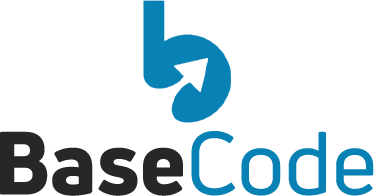Running a manufacturing business in Nigeria today is no small feat. From dealing with inconsistent raw material supply to unpredictable logistics and fluctuating exchange rates, manufacturers are constantly under pressure to keep operations stable and customers satisfied.
Yet, one of the biggest silent struggles many Nigerian manufacturers face is a lack of visibility and coordination across their supply chains. Teams in procurement, production, warehousing, and distribution often work in silos, leading to delays, errors, and stock imbalances that could have been prevented.
That is where Zoho ERP comes in. With its powerful tools and flexibility, Zoho ERP for Nigerian manufacturers provides a practical, cost-effective way to streamline operations, increase visibility, and improve supply chain efficiency from end to end.
Let’s break down how this works in detail.
The Supply Chain Challenges in Nigeria
The manufacturing sector in Nigeria contributes massively to the country’s GDP, yet it continues to face recurring bottlenecks. Some of the most common include:
1. Poor Inventory Visibility
Many factories still rely on manual record-keeping or outdated spreadsheets. This often leads to overstocking, understocking, and stockouts at critical times.
2. Unreliable Supplier Coordination
Suppliers sometimes delay deliveries or provide incomplete materials, causing downtime on the production floor. Without a system that tracks supplier performance, it is hard to maintain accountability.
3. Disjointed Departments
Procurement, production, and logistics departments often use different tools or work independently, resulting in data inconsistencies and communication breakdowns.
4. Rising Costs and Inefficiency
Without real-time insight into what is happening at every stage of the supply chain, decision-making becomes reactive rather than strategic. This often leads to waste and higher operational costs.
To overcome these challenges, many Nigerian manufacturers are beginning to embrace digital transformation through Zoho ERP solutions, which unify processes and data on one platform.
You may like to read this: How Nigerian Retailers Can Prevent Stockouts with Zoho Inventory
What Zoho ERP Can Do for Manufacturing Businesses
Zoho ERP is not just accounting or project management software. It is a complete business management suite designed to connect every process across your organization.
For Nigerian manufacturers, Zoho ERP offers tools that make it easier to:
-
Monitor supply chain activities in real time
-
Automate manual tasks such as purchase order creation and approvals
-
Track material usage from procurement to production
-
Improve communication between departments and branches
-
Forecast demand based on historical data
Unlike traditional ERP systems that are expensive to implement, Zoho ERP is cloud-based and tailored for SMEs and mid-sized manufacturers, which means you can start small and scale as your business grows.
It also integrates seamlessly with Zoho Books, Zoho Inventory, and Zoho Analytics, giving you a 360-degree view of your operations.
Key Modules for Supply Chain Optimization
One of the biggest strengths of Zoho ERP is its modular structure. Each module focuses on a specific part of your supply chain, allowing your business to streamline operations step by step.
Here are some of the most important modules for Nigerian manufacturers:
1. Inventory Management
This module gives you full control over raw materials, work-in-progress items, and finished goods. You can track stock levels in multiple locations, set automatic reorder points, and monitor expiry dates.
For example, a food manufacturing company in Lagos can use Zoho Inventory to ensure raw materials like packaging or ingredients are always available, avoiding production delays.
2. Procurement and Supplier Management
Zoho ERP helps you manage vendor relationships, request for quotations (RFQs), purchase orders, and supplier ratings in one place. You can easily compare supplier performance and prices over time.
For manufacturers sourcing parts locally and internationally, this reduces the risk of procurement errors and late deliveries.
3. Production Planning and Control
With this module, operations managers can plan production runs based on available materials, demand forecasts, and machine capacity. You can also view progress in real time and adjust schedules to meet delivery deadlines.
4. Warehouse and Logistics Management
This feature allows you to track goods as they move between your warehouses and customers. You can assign delivery routes, monitor fleet performance, and even automate delivery updates for clients.
5. Financial and Performance Analytics
Every transaction, purchase, and stock movement feeds directly into your financial reports. Zoho ERP integrates with Zoho Books to help you generate profit and loss reports, cash flow statements, and cost analyses instantly.
In essence, Zoho ERP for Nigerian manufacturers connects every part of your supply chain, ensuring no process is left unmanaged or unseen.
You may like to read this: Top 7 Zoho Tools Every Nigerian SME Should Use
Real-Life Scenarios of ERP in Action
To see how this works, imagine a Nigerian plastic manufacturing company that produces packaging materials for multiple FMCG clients.
Before adopting Zoho ERP, their procurement team often over-ordered materials, while the production department sometimes ran out of resin due to miscommunication. Deliveries were also delayed because logistics had no visibility into production timelines.
After implementing Zoho ERP, the business saw immediate improvements:
-
Procurement now receives automatic alerts when materials are running low.
-
Production plans are automatically updated based on available stock.
-
Delivery schedules are synced with warehouse dispatch times.
-
Management can view all operations on a single dashboard.
This level of visibility helps management respond quickly to disruptions and plan more accurately for future demand. Over time, they reduced wastage, improved supplier relationships, and increased customer satisfaction.
Another example is a pharmaceutical manufacturer in Ogun State using Zoho ERP to track batch numbers and expiry dates across multiple warehouses. This ensures full traceability and compliance with regulatory requirements.
These are real use cases that show how ERP systems like Zoho are helping Nigerian manufacturers compete better both locally and internationally.
Partnering with Digital Socius for ERP Success
While Zoho ERP is powerful, implementing it correctly is where the real transformation happens. Many businesses in Nigeria invest in ERP tools but fail to get results because of poor setup, lack of training, or wrong configurations.
That is why working with a certified Zoho Partner like Digital Socius is a smart choice.
Digital Socius helps Nigerian manufacturing businesses:
-
Assess current supply chain challenges and recommend the right ERP modules
-
Customize Zoho ERP to fit their operations, including procurement, production, and logistics
-
Integrate Zoho ERP with existing systems such as accounting or CRM
-
Train staff to use the software effectively
-
Provide ongoing support to ensure long-term success
Whether you are a factory owner, supply chain director, or operations manager, Digital Socius ensures your transition to Zoho ERP is smooth, efficient, and result-driven.
Final Thoughts
For Nigerian manufacturers looking to gain control, visibility, and efficiency across their supply chains, Zoho ERP is a game-changer.
It bridges the gap between departments, automates routine tasks, and provides real-time data that empowers leaders to make better business decisions.
If your manufacturing business is ready to scale smarter, it’s time to explore Zoho ERP for Nigerian manufacturers with the right partner.
Reach out to Digital Socius today to start your ERP journey and take the first step toward building a more connected and competitive supply chain.




0 Comments